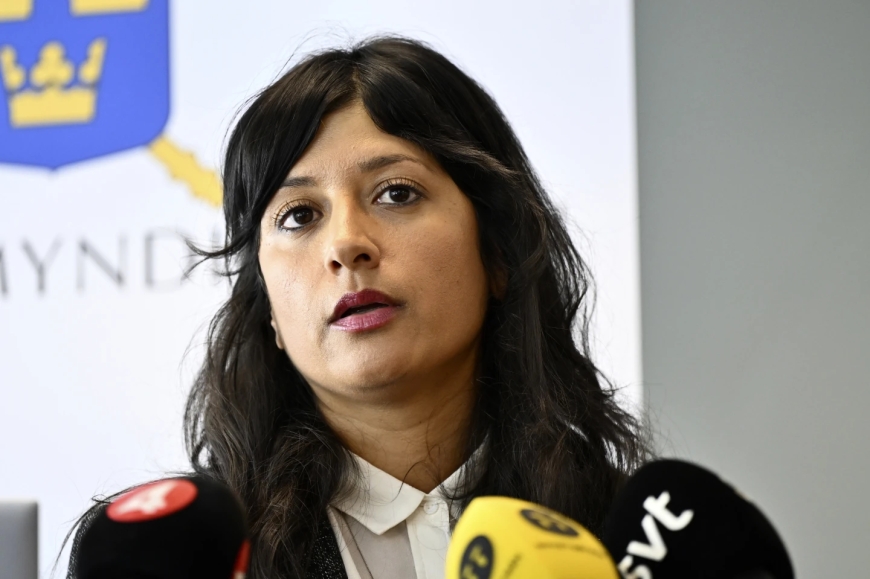Trial of Lina Laina Ishaq: An Historic Case for Yazidi Victim Justice
Lina Laina Ishaq, a 52-year-old Swedish citizen, has been put on trial in Stockholm accused of war crimes, genocide, and crimes against humanity for allegedly mistreating Yazidi women and children under the Islamic State's (IS) cruel rule in a momentous event for international justice. This trial marks a turning point in the treatment of the awful crimes carried out against the Yazidi community, one of Iraq's oldest religious minority, and underscores Sweden's will to punish offenders responsible for their roles in these horrible deeds.

Trial of Lina Laina Ishaq: An Historic Case for Yazidi Victim Justice
Lina Laina Ishaq, a 52-year-old Swedish citizen, has been put on trial in Stockholm accused of war crimes, genocide, and crimes against humanity for allegedly mistreating Yazidi women and children under the Islamic State's (IS) cruel rule in a momentous event for international justice. This trial marks a turning point in the treatment of the awful crimes carried out against the Yazidi community, one of Iraq's oldest religious minority, and underscores Sweden's will to punish offenders responsible for their roles in these horrible deeds.
Ishaq's claims against her time in Raqqa, the centre of IS's self-described caliphate, centre on her handling of Yazidi women and children as property. Prosecutor Reena Devgun claims that these people suffered terrible mistreatment including forced labour, sexual enslavement, and extrajudicial killings. According to the prosecution's case, Ishaq allegedly kept nine Yazidi people—including children—for up to seven months, mistreating and abusing them severely.
One of the most unsettling claims is that Ishaq assaulted a purportedly just one-month-old infant by covering its lips to quiet its cries. She is also accused of selling Yazidi prisoners to IS, knowing full well the terrible destines they would meet—often including sexual abuse or execution. As the group aimed to exterminate Yazidis and impose a brutal ideology, this shows not only the personal depravity of Ishaq's activities but also the systematic targeting of the group under IS leadership.
Starting on October 7, 2024, the trial is slated to run over two months mostly behind closed doors. This strategy begs issues about openness and the public's right to observe the events of a case symbolising the struggle against impunity for war crimes. Still, the significance of this trial cannot be emphasised since it marks a vital stage in the continuous endeavour to correct the crimes done against Yazidis, who suffered greatly during the IS onslaught started in 2014.
IS fighters captured thousands of women and children as they raided Yazidi villages in Sinjar area of Iraq at that period. While males were brainwashed into the extreme philosophy of the gang, women were often compelled into sexual servitude. International awareness of the suffering of the Yazidi people has attracted different political and legal reactions meant to seek justice for the victims. In this larger sense, Ishaq's trial is a historic case since it is the first one in which such crimes against Yazidis have been tried in Sweden, so maybe influencing other countries dealing with similar problems.
The world's reaction to the Yazidi genocide has been uneven; many nations struggle to fairly handle survivor suffering or hold offenders responsible. Sweden's choice to punish Ishaq shows its dedication to global human rights standards and represents the increasing understanding that people cannot evade accountability for their deeds regardless of their country or age.
Ishaq is not fresh into the Swedish legal system. Previously found guilty in Sweden for bringing her two-year-old son to Syria under false pretences in 2014, she was Her dishonesty underlines the complexity of people who visit conflict areas since many families have become caught in the anarchy created by organisations like IS.
It's important to keep alert about the wider ramifications of Ishaq's case as the trial runs through. Apart from providing a mechanism of pursuing justice for the Yazidi victims, it is evidence of the resiliency of the survivors who have battled for responsibility and acknowledgement in the face of great pain. Though there are many obstacles on the road to justice, the prosecution of people like Ishaq marks a turning point in the worldwide campaign against impunity for war crimes and the defence of human rights.
The result of this trial will probably be felt much beyond Sweden's boundaries, impacting how countries handle their obligations to victims of crimes and so confirming that those who perpetrate war crimes will be held responsible, wherever they seek asylum. Ishaq's trial reminds us sharply that justice must be sought tirelessly and unequivocally for individuals who have been victimised by the tragedies of war in an era when political will can weaken in the face of difficult international challenges.













































